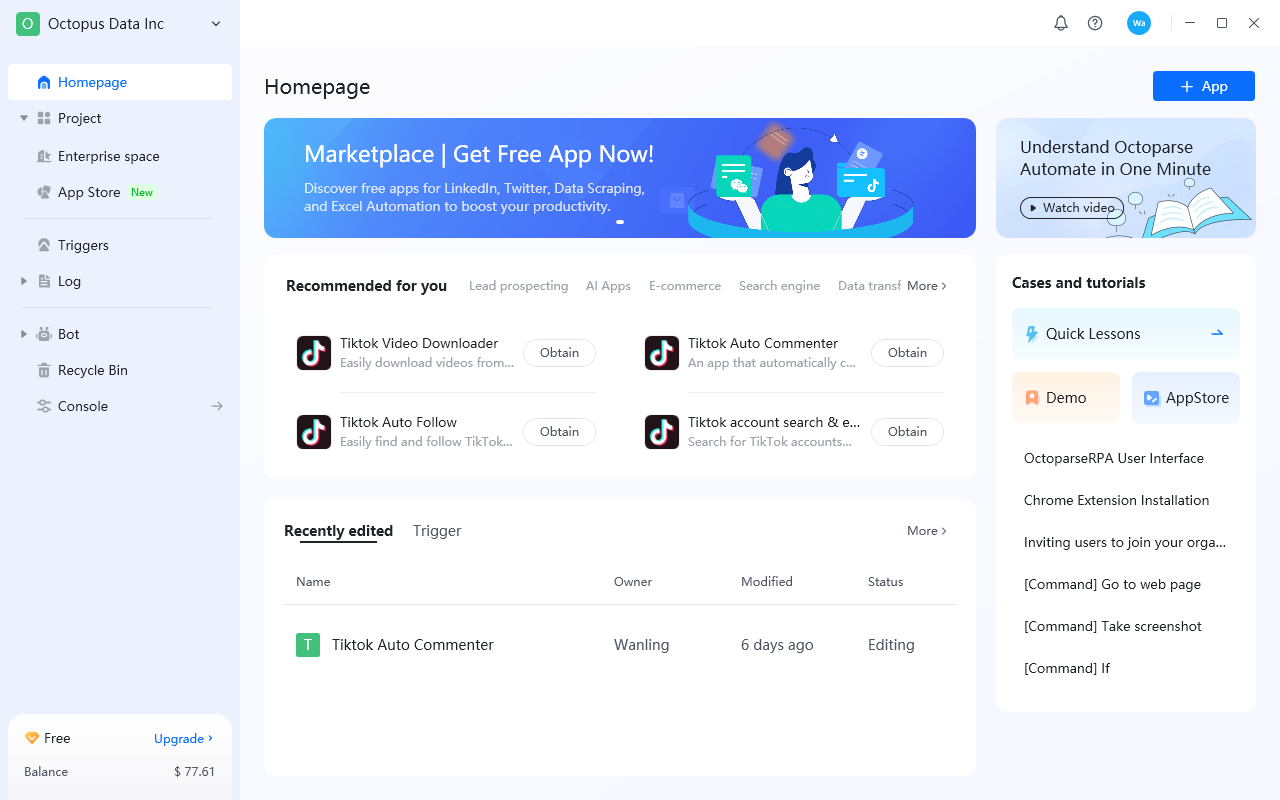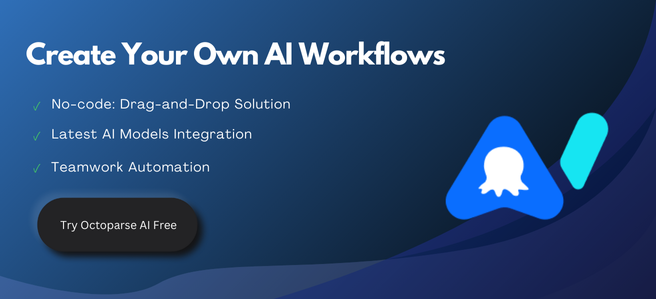The digital transformation wave continues to reshape industries, with Robotic Process Automation (RPA) emerging as a key driver of efficiency. What began as a tool for automating simple, repetitive tasks has evolved into sophisticated platforms combining AI and machine learning. Today’s RPA solutions empower organizations to streamline complex workflows, enhance decision-making with real-time data, and significantly improve productivity across departments.
Recent studies show that companies implementing RPA achieve 30-50% cost savings on automated processes while improving accuracy rates to nearly 100%. The global RPA market is projected to reach $13.4 billion by 2030, growing at a 32% CAGR, as more organizations recognize its transformative potential across finance, healthcare, customer service and operations.
The 6 Best Intelligent Automation Platforms
Robotic Process Automation (RPA) uses software robots (“bots”) to automate repetitive, rule-based tasks traditionally performed by humans. These tools interact with digital systems—such as ERP, CRM, or web applications—to, to execute processes like data entry, invoice processing, customer service responses, and more.
Modern RPA platforms now integrate AI, machine learning, and natural language processing (NLP) to handle unstructured data, make intelligent decisions, and continuously improve workflows. Businesses adopt RPA to reduce costs, minimize errors, and enhance operational efficiency.
Let’s examine the leading RPA tools transforming business operations, highlighting their unique capabilities and ideal use cases.
1. Octoparse AI

How It Works:
Octoparse AI stands out for its intelligent web scraping capabilities, enabling users to collect data from even the most complex websites without writing code. Its visual workflow designer and smart extraction features automatically identify and pull relevant data, adapting to website changes.
Key Advantages:
- Extracts data from dynamic, unstructured websites with ease
- Continuously learns and adjusts to website layout changes
- Intuitive point-and-click interface accessible to non-technical users
Best For: Market research, competitive intelligence, e-commerce monitoring, and any scenario requiring large-scale web data collection. Learn more about Octoparse AI’s features here.
Pros:
- No coding skills required
- Cloud-based with scheduled scraping
- Excellent for large-scale data extraction
Cons:
- Limited API integration options
- Can struggle with heavily guarded sites
2. UiPath
How It Works:
UiPath mimics human interactions with software applications through its drag-and-drop interface. Users can record processes or build workflows using pre-made templates from its extensive marketplace.
Key Advantages:
- Low-code platform with hundreds of pre-built automation templates
- Seamless integration with common business applications
- Strong community support and learning resources
Best For: Organizations seeking to automate repetitive tasks quickly without extensive developer resources.
Pros:
- Largest RPA community support
- Excellent for Citrix automation
- Strong governance features
Cons:
- Steep learning curve for advanced features
- Can be resource-intensive
- Enterprise pricing escalates quickly
3. WorkFusion
How It Works:
WorkFusion’s Cognitive Process Automation platform combines RPA with AI to handle complete business processes. It learns from human actions and adapts to regulatory changes automatically.
Key Advantages:
- Self-learning capability improves over time
- Specialized solutions for regulated industries
- End-to-end process automation
Best For: Healthcare, insurance, and financial services needing compliant, intelligent automation.
Pros:
- Excellent compliance features
- Strong cognitive capabilities
- Good for complex decision workflows
Cons:
- Requires significant implementation
- Higher total cost of ownership
- Limited to certain verticals
4. Kofax
How It Works:
Kofax focuses on intelligent document processing, combining RPA with AI to extract and process information from various file formats.
Key Advantages:
- Advanced document understanding capabilities
- Optimized customer engagement workflows
- Strong data transformation features
Best For: Businesses handling high volumes of invoices, contracts, or customer documents.
Pros:
- Best-in-class OCR accuracy
- Strong mobile capture
- Good legacy system integration
Cons:
- UI feels outdated
- Requires clean documents for best results
- Implementation can be lengthy
5. Pega Systems
How It Works:
Pega offers a no-code automation platform with AI-powered decision-making capabilities designed for large-scale implementations.
Key Advantages:
- Enterprise-grade scalability
- Real-time process optimization
- Strong vertical solutions for regulated industries
Best For: Large organizations in banking, healthcare, and insurance needing robust, compliant automation.
Pros:
- Excellent case management
- Strong customer journey tools
- Good low-code capabilities
Cons:
- Complex licensing model
- Requires Pega-specific skills
- Can be overkill for simple automation
6. AntWorks
How It Works:
AntWorks combines traditional RPA with cognitive automation and advanced analytics in a unified platform.
Key Advantages:
- Integrated approach to automation
- Continuous process improvement through machine learning
- Strong analytics dashboard
Best For: Organizations seeking an all-in-one automation solution across multiple process types.
Pros:
- Good for unstructured data
- Strong pattern recognition
- Integrated analytics
Cons:
- Smaller partner ecosystem
- Less vertical-specific than competitors
- Requires data science support for full value
How to Select the Right RPA Tool
Finance
In the finance industry, tasks like invoice processing, financial reporting, and risk analysis demand accuracy and security. Automation Anywhere’s OCR and data extraction capabilities, paired with Bot Insight for process optimization, make it a strong candidate. Blue Prism, known for its enterprise-grade security and scalability, is great for integrating with existing ERP systems.
However, if you’re dealing with data from online financial platforms, Octoparse AI’s web scraping prowess comes into play. Its intelligent algorithms can precisely extract financial data from various websites, ensuring up – to – date and accurate information for analysis.
Customer Service
UiPath’s natural language processing capabilities are excellent for triaging customer tickets and suggesting responses. But if you aim to gather customer sentiment data from social media platforms or review sites, Octoparse AI can be a game changer. It can scrape large volumes of customer feedback, analyze it, and provide valuable insights to enhance customer service strategies.
Market Research
For market research, Octoparse AI is specifically designed. Businesses may gather information from industry forums, social media, and rival websites thanks to its sophisticated web scraping and intelligent extraction tools. There is no need for complicated local infrastructure thanks to the cloud-based deployment, which guarantees smooth functioning.
You may gain a competitive edge by rapidly gathering and analyzing market trends, rival pricing, and client preferences with Octoparse AI.
Conclusion
Each of the RPA tools discussed in this article has special qualities. But Octoparse AI’s robust web scraping features, clever data extraction, and intuitive user interface make it stand out. Octoparse AI eliminates errors, frees up human resources, and yields meaningful insights by automating repetitive data-gathering operations.
We recommend starting with a free trial of Octoparse AI if you’re excited to learn more about RPA. See for yourself how it can change the way you collect data. Keep checking our blog, where we frequently provide educational pieces, for additional in-depth information about RPA and its uses.
